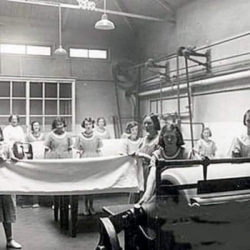
Ireland has a history of rebellion and political activism, particularly during its struggle for independence from British rule in the early 20th century. While it may not have the "most" rebels in terms of sheer numbers, the country has a strong tradition of political and social activism. Some key moments in Ireland's history of rebellion and activism include:
-
Easter Rising (1916): The Easter Rising was a significant rebellion against British rule in Ireland. It began on Easter Monday in 1916 when Irish republicans staged an armed uprising in Dublin. While the rising was initially unsuccessful and resulted in the execution of its leaders, it played a pivotal role in inspiring subsequent independence movements.
-
War of Independence (1919-1921): Following the Easter Rising, the Irish War of Independence began in 1919. It was marked by guerrilla warfare against British forces and culminated in the signing of the Anglo-Irish Treaty in 1921, which led to the establishment of the Irish Free State (now the Republic of Ireland) and the end of British rule in most of Ireland.
-
Irish Civil War (1922-1923): The Irish Civil War followed the signing of the Anglo-Irish Treaty, as divisions emerged between those who supported the treaty and those who opposed it. It was a period of intense conflict within Ireland.
-
The Troubles (Late 20th Century): Northern Ireland, which remained part of the United Kingdom, experienced a prolonged period of sectarian violence and political conflict known as "The Troubles" from the late 1960s to 1998. It involved tensions between nationalists (predominantly Catholic) and unionists (predominantly Protestant) and saw various paramilitary groups engaged in violence.
-
Social and Political Activism: Ireland has a strong tradition of social and political activism, including movements for women's rights, LGBTQ+ rights, and civil rights. Notable figures like Mary Robinson, the first female President of Ireland, and David Norris, a prominent LGBTQ+ rights advocate, have been involved in these movements.
While Ireland's history is marked by rebellion and political struggle, it has also experienced periods of peace, stability, and progress. Today, Ireland is a sovereign nation with a democratic government and a commitment to peace, social justice, and human rights.

































